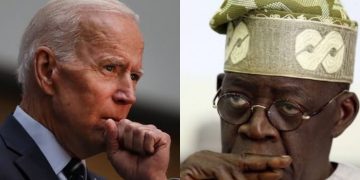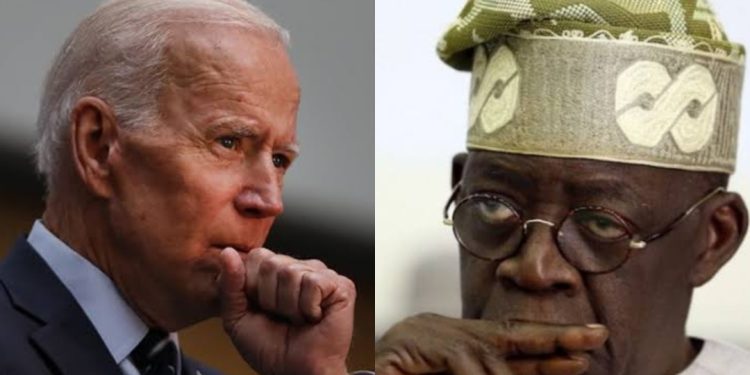By John Ikani
The newly elected President of Nigeria, Bola Tinubu, has not yet received an official congratulatory message from US President Joe Biden, which is customary when any American ally elects a new president.
The silence from President Biden, two weeks after Mr. Tinubu’s victory, is in contrast to his predecessor, Barack Obama, who congratulated Muhammadu Buhari on the same day the Independent National Election Commission, (INEC) pronounced him the winner in 2015.
Moreover, in May of last year, President Biden had congratulated the president-elect of the Philippines, Ferdinando Marcos Jr, with the details of the call being published on the White House website.
In October of 2022, the US President also sent a congratulatory message to Luiz Inácio Lula da Silva, when he emerged as the winner of the presidential election in Brazil, which was also published on the White House website.
The US President’s silence towards Nigeria’s newly elected president may be perceived as his scepticism of the electoral process that produced him.
In fact, the European Union has already expressed their concerns, stating that the election process was distorted and lacked transparency.
Similarly, British think-tank, Chatham House, reported that the presidential polls were tainted with intimidation, violence, and irregularities.
Instead of an official congratulatory message from the US President, it was Ned Price, US Department of State spokesperson, who extended his congratulations to Mr. Tinubu on behalf of the US government.
In his statement, Mr. Price acknowledged the frustrations of many Nigerians with INEC’s electoral process and encouraged aggrieved candidates to challenge Mr. Tinubu’s victory in court.
It remains to be seen whether President Biden will eventually send his congratulations to President-elect Tinubu, but the delay in doing so has raised concerns about the US government’s stance on the election’s legitimacy.
The relationship between the two countries could be affected by this perceived skepticism.




































